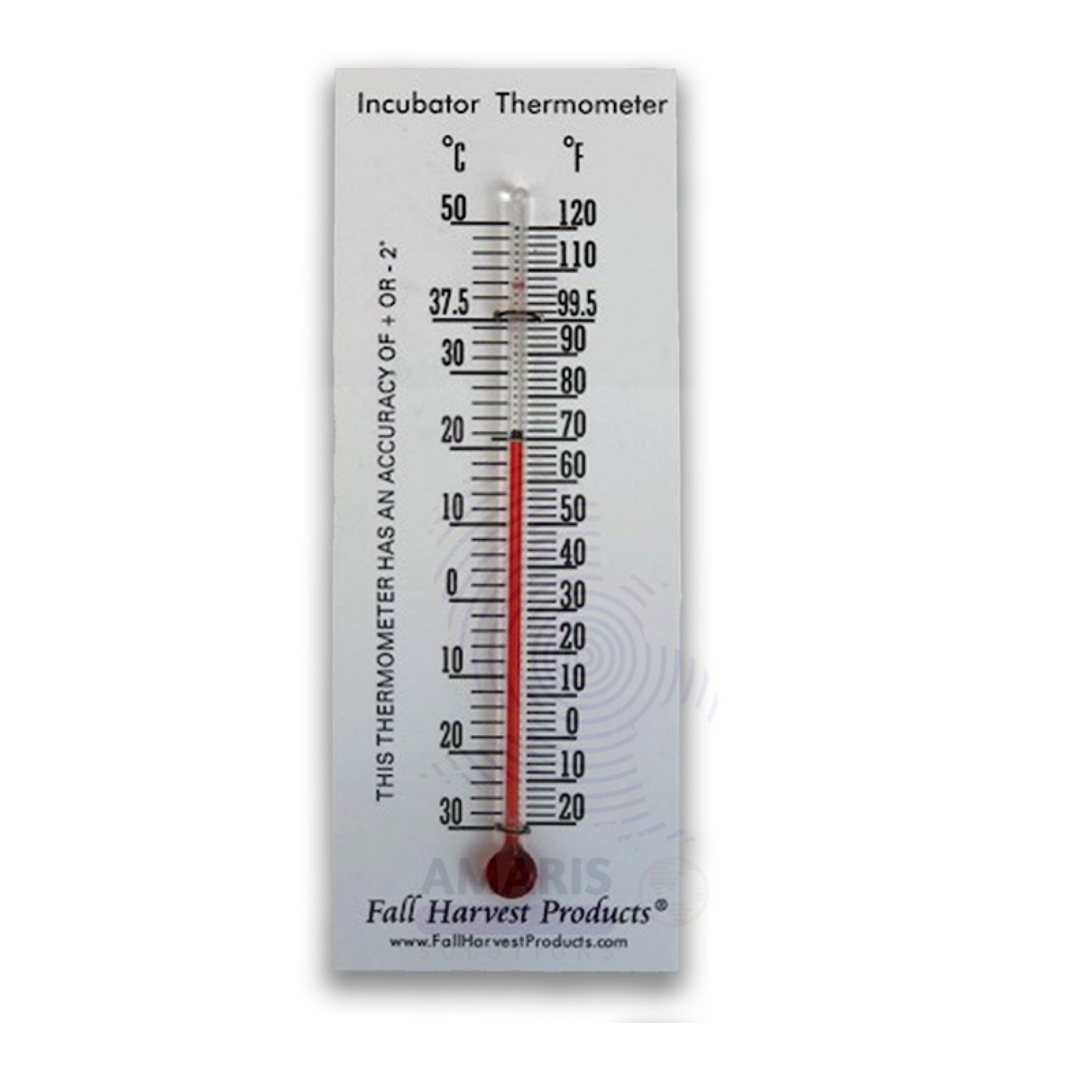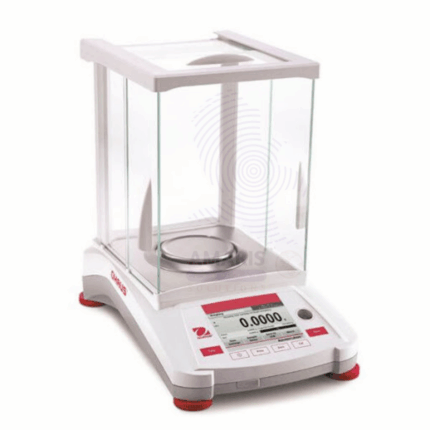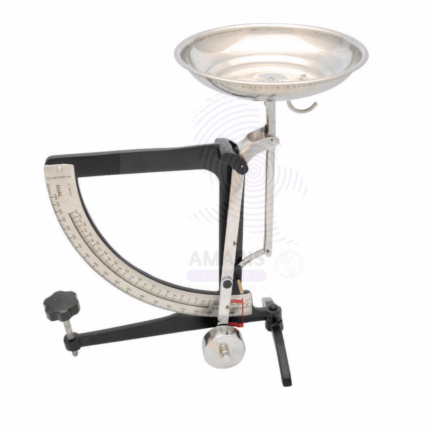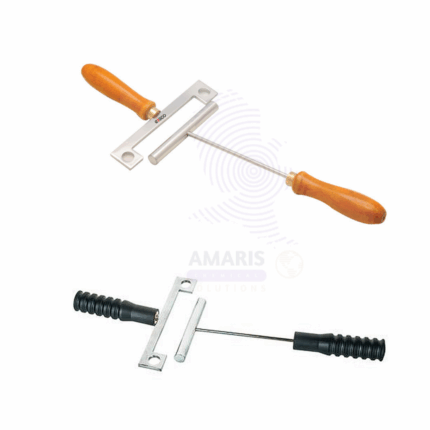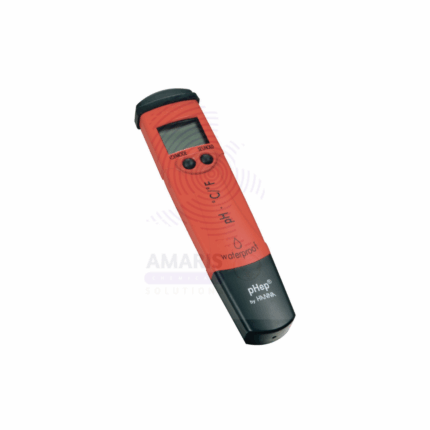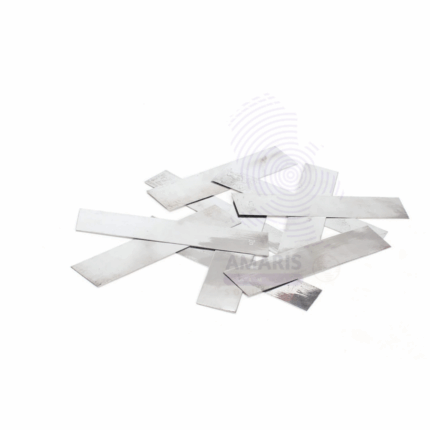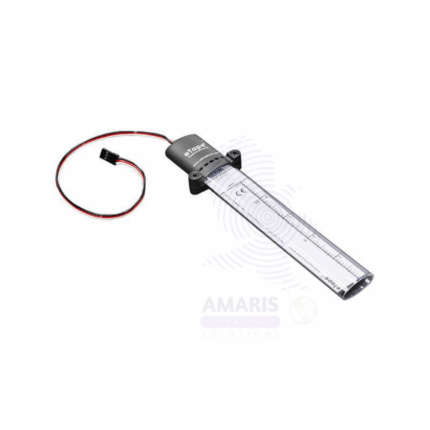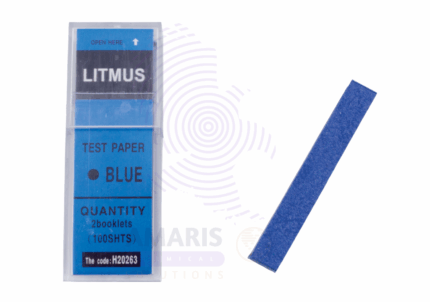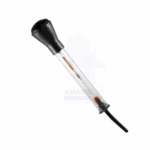

Incubator Thermometer
$ 356.16 Original price was: $ 356.16.$ 356.05Current price is: $ 356.05.
Incubator Thermometer is a precision temperature-measuring instrument specifically designed for use in laboratory and medical incubators. It provides accurate and consistent readings within the temperature range typically required for biological growth, microbial cultures, egg incubation, or chemical reactions. These thermometers are usually made from high-grade glass or digital components and come with a clear, easy-to-read scale calibrated in degrees Celsius (°C). Some models may be filled with alcohol or other safe fluids instead of mercury. They are essential for monitoring and maintaining optimal incubation conditions to ensure experimental accuracy and biological viability.
Incubator Thermometer
Primary Uses
- Biological and Clinical Laboratories
- Monitoring temperature stability in incubators used for microbial and cell culture growth.
- Ensuring optimal thermal conditions for egg incubation in zoological or veterinary studies.
- Used in pathology and clinical labs for sample incubation and diagnostics.
- Tracking and verifying environmental control in medical incubators (e.g., for neonatal care).
- Supporting tissue culture, plant growth experiments, and biochemical reactions.
Secondary Uses
- Research and Educational Applications
- Teaching temperature control and biological growth dependency in academic labs.
- Monitoring experimental setups requiring narrow thermal margins.
- Used in food science labs for incubation of spoilage organisms and fermentation processes.
- Employed in R&D for testing heat effects on product stability and formulation.
1.Basic Identification Attributes
- Material: Glass or digital sensor
- Scale: Celsius (°C), sometimes dual scale (°C/°F)
- Range: Typically 0°C to 110°C, depending on the application
- Fluid: Alcohol-based or spirit-filled (mercury-free) for safety
2.Physical & Chemical Properties
- High accuracy and repeatability in controlled environments
- Clear, easy-to-read graduations
- Resistant to typical incubator humidity and temperatures
3.Safety & Hazard Attributes
- Glass models can break if mishandled
- Alcohol-filled thermometers are non-toxic, unlike mercury-based versions
- Avoid sudden temperature changes to prevent cracking
4.Storage & Handling Attributes
- Store vertically in protective cases when not in use
- Keep away from direct sunlight and corrosive chemicals
- Clean gently with alcohol or neutral detergent to maintain clarity
5.Regulatory & Compliance Attributes
- Complies with ISO standards for laboratory thermometers
- Suitable for use in GMP and GLP laboratory environments
6.Environmental & Health Impact
- Mercury-free options available for safer handling and disposal
- Reusable, reducing environmental waste compared to digital single-use sensors
Safety Handling Precautions
- Handle with care; avoid dropping or subjecting to thermal shock
- Use PPE when working near biohazards in incubators
First Aid Measures
- In case of breakage, collect fragments carefully using gloves
- For exposure to thermometer fluids, rinse skin thoroughly and seek medical help if irritation persists
Firefighting Measures
- Non-flammable materials in most models
- In case of fire, use extinguisher suitable for electrical or lab fires if digital models are present


 Preservatives(food)
Preservatives(food) Flavor Enhancers
Flavor Enhancers Acidulants
Acidulants Sweeteners
Sweeteners Antioxidants
Antioxidants Colorants(food)
Colorants(food) Nutraceutical Ingredients (food)
Nutraceutical Ingredients (food) Nutrient Supplements
Nutrient Supplements Emulsifiers
Emulsifiers
 Collectors
Collectors Dust Suppressants
Dust Suppressants Explosives and Blasting Agents
Explosives and Blasting Agents Flocculants and Coagulants
Flocculants and Coagulants Frothers
Frothers Leaching Agents
Leaching Agents pH Modifiers
pH Modifiers Precious Metal Extraction Agents
Precious Metal Extraction Agents
 Antioxidants(plastic)
Antioxidants(plastic) Colorants (Pigments, Dyes)
Colorants (Pigments, Dyes) Fillers and Reinforcements
Fillers and Reinforcements Flame Retardants
Flame Retardants Monomers
Monomers Plasticizers
Plasticizers Polymerization Initiators
Polymerization Initiators Stabilizers (UV, Heat)
Stabilizers (UV, Heat)
 Antifoaming Agents
Antifoaming Agents Chelating Agents
Chelating Agents Coagulants and Flocculants
Coagulants and Flocculants Corrosion Inhibitors
Corrosion Inhibitors Disinfectants and Biocides
Disinfectants and Biocides Oxidizing Agents
Oxidizing Agents pH Adjusters
pH Adjusters Scale Inhibitors( water)
Scale Inhibitors( water)
 Antioxidants(cosmetic)
Antioxidants(cosmetic) Emollients
Emollients Fragrances and Essential Oils
Fragrances and Essential Oils Humectants
Humectants Preservatives
Preservatives Surfactants(cosmetic)
Surfactants(cosmetic) Thickeners
Thickeners UV Filters
UV Filters
 Fertilizers
Fertilizers Soil Conditioners
Soil Conditioners Plant Growth Regulators
Plant Growth Regulators Animal Feed Additives
Animal Feed Additives Biostimulants
Biostimulants Pesticides (Herbicides, Insecticides, Fungicides)
Pesticides (Herbicides, Insecticides, Fungicides)
 Active Pharmaceutical Ingredients (APIs)
Active Pharmaceutical Ingredients (APIs) Excipients
Excipients Solvents(pharmaceutical)
Solvents(pharmaceutical) Antibiotics
Antibiotics Antiseptics and Disinfectants
Antiseptics and Disinfectants Vaccine Adjuvants
Vaccine Adjuvants Nutraceutical Ingredients (pharmaceutical)
Nutraceutical Ingredients (pharmaceutical) Analgesics & Antipyretics
Analgesics & Antipyretics
 Analytical Reagents
Analytical Reagents Solvents(lab)
Solvents(lab) Chromatography Chemicals
Chromatography Chemicals Spectroscopy Reagents
Spectroscopy Reagents microbiology-and-cell-culture-reagents
microbiology-and-cell-culture-reagents Molecular Biology Reagents
Molecular Biology Reagents Biochemical Reagents
Biochemical Reagents Inorganic and Organic Standards
Inorganic and Organic Standards Laboratory Safety Chemicals
Laboratory Safety Chemicals Specialty Laboratory Chemicals(Special Laboratory Equipment)
Specialty Laboratory Chemicals(Special Laboratory Equipment)
 Demulsifiers
Demulsifiers Hydraulic Fracturing Fluids
Hydraulic Fracturing Fluids Scale Inhibitors(oil)
Scale Inhibitors(oil) Surfactants(oil)
Surfactants(oil) Drilling Fluids
Drilling Fluids
 Dyes and Pigments
Dyes and Pigments Bleaching Agents
Bleaching Agents Softening Agents
Softening Agents Finishing Agents
Finishing Agents Antistatic Agents
Antistatic Agents
 Admixtures
Admixtures Waterproofing Agents
Waterproofing Agents Sealants and Adhesives
Sealants and Adhesives Curing Compounds
Curing Compounds Concrete Repair Chemicals
Concrete Repair Chemicals Anti-Corrosion Coatings
Anti-Corrosion Coatings
 Surfactants(cleaning)
Surfactants(cleaning) Builders
Builders Enzymes
Enzymes Solvents (Cleaning)
Solvents (Cleaning) Fragrances
Fragrances
 Electronic Chemicals
Electronic Chemicals Catalysts
Catalysts Lubricants
Lubricants Photographic Chemicals
Photographic Chemicals Refrigerants
Refrigerants Automotive chemicals
Automotive chemicals Pyrotechnic Chemicals
Pyrotechnic Chemicals
 Biodegradable Surfactants
Biodegradable Surfactants Bio-based Solvents
Bio-based Solvents Renewable Polymers
Renewable Polymers Carbon Capture Chemicals
Carbon Capture Chemicals Wastewater Treatment Chemicals
Wastewater Treatment Chemicals
 Pigments
Pigments Solvents(paint)
Solvents(paint) Specialty Coatings
Specialty Coatings Binders/Resins
Binders/Resins Additives
Additives Driers
Driers Anti-Corrosion Agents
Anti-Corrosion Agents Functional Coatings
Functional Coatings Application-Specific Coatings
Application-Specific Coatings
 Fresh Herbs
Fresh Herbs Ground Spices
Ground Spices Whole Spices
Whole Spices Spice Blends
Spice Blends Dried Herbs
Dried Herbs
 Leavening Agents
Leavening Agents Dough Conditioners
Dough Conditioners Flour Treatments
Flour Treatments Fat Replacers
Fat Replacers Decoratives
Decoratives Preservatives(baking)
Preservatives(baking)
 Plasticizers & Softeners
Plasticizers & Softeners Reinforcing Agents
Reinforcing Agents Adhesion Promoters
Adhesion Promoters Vulcanizing Agents
Vulcanizing Agents Antidegradants
Antidegradants Blowing Agents
Blowing Agents Fillers & Extenders
Fillers & Extenders Accelerators & Retarders
Accelerators & Retarders